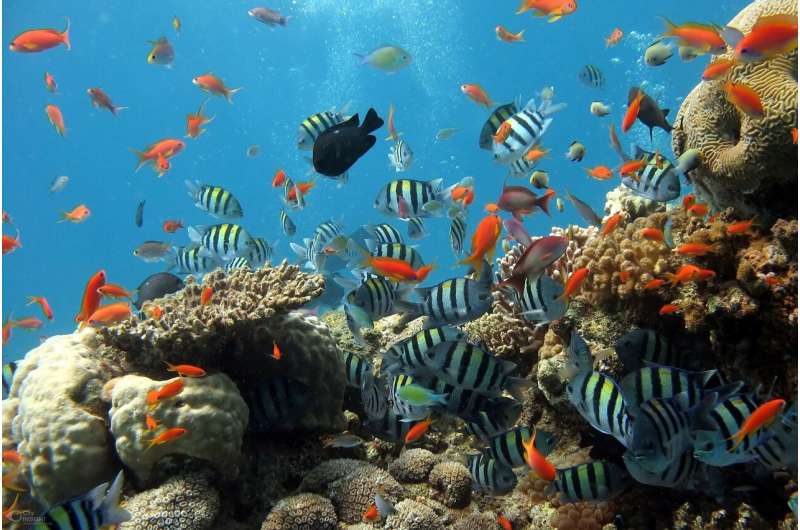Researchers scale up new blood test for stressed fish

Developing a blood test to predict the stress of aquatic species and help industry develop a more sustainable fish economy is the focus of a new research project at The University of Western Australia in collaboration with the Department of Primary Industries and Regional Development.
Research Associate Dr. Catherine Wingate, from UWA's School of Molecular Sciences said the test could lead to improved fish health and welfare in the global aquaculture industry.
"My research focuses on measuring proteins in the blood of aquatic species to detect metabolic stress they may be facing," Dr. Wingate said.
"This stress could be caused by disease, inadequate nutrition or environmental factors such as temperature stress and pollution.
"By detecting metabolic stress, we can develop an early warning system to assist the industry in managing their stock for optimal productivity and sustainability, while ensuring animal health and welfare."
A practice that involves cultivating aquatic animal populations in controlled conditions, aquaculture has become an important contributor to our food supply.
"Aquaculture is important because it reduces the number of wild-caught fish that we are taking from the ocean and enables us to foster a more sustainable environment that doesn't deplete our oceans," Dr. Wingate said.
"There are numerous challenges facing the aquaculture industry, which include day-to-day stock management for optimal product quality and sustainable growth rates.
"Research using this technology could also optimize reproduction, reduce susceptibility to illness, disease and mortality, and develop nutritious and sustainable fish feed."
Dr. Wingate is also interested in exploring the potential of adapting the technology to monitor metabolic stress caused by environmental change in coral reef ecosystems.
Provided by University of Western Australia


















